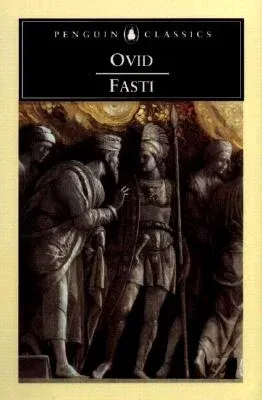Ovid
(Author)Fasti (Revised)Paperback - Revised, 1 December 2000

Qty
1
Turbo
Ships in 2 - 3 days
In Stock
Free Delivery
Cash on Delivery
15 Days
Free Returns
Secure Checkout

Reading Age
Ages: 18
Grade Levels
13
Part of Series
Penguin Classics
Print Length
432 pages
Language
English
Publisher
Penguin Group
Date Published
1 Dec 2000
ISBN-10
0140446907
ISBN-13
9780140446906
Description
Product Details
Audience:
Ages: 18
Author:
Book Edition:
Revised
Book Format:
Paperback
Country of Origin:
GB
Date Published:
1 December 2000
Dimensions:
19.81 x
12.95 x
2.13 cm
Educational Level:
Grade Levels: 13
Genre:
Ancient (To 499 A.D.)
ISBN-10:
0140446907
ISBN-13:
9780140446906
Language:
English
Location:
London, England
Pages:
432
Publisher:
Series:
Weight:
285.76 gm